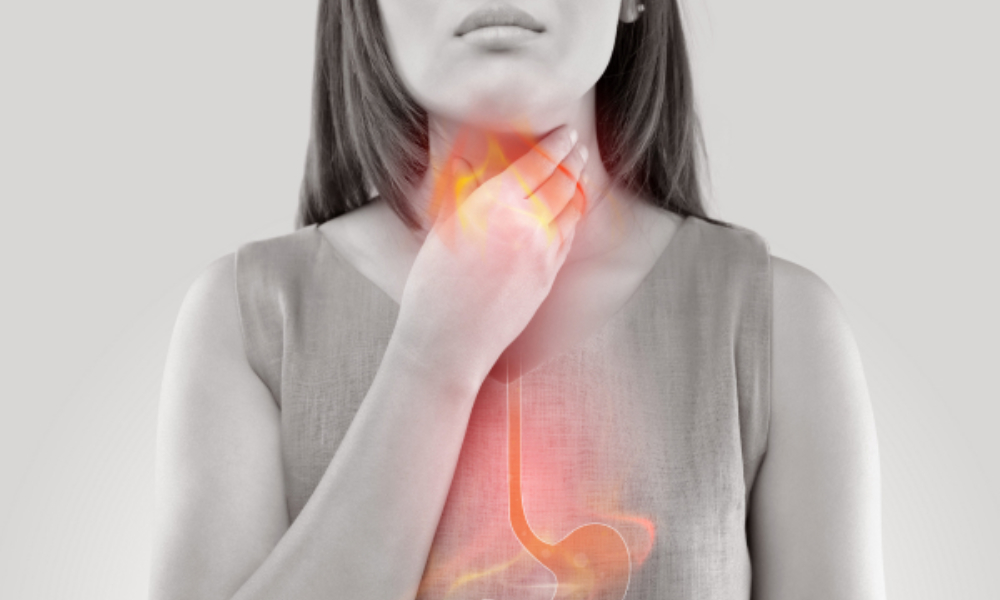
Is GERD Ruining Your Holiday Spirit?
The holiday season is a tremendous time for many across the country, with wonderful holiday parties and family gatherings filled with delicious foods, drinks and fun. Unfortunately, many others are left suffering in silence from a digestive disease called GERD, or Gastroesophageal Reflux Disease.
What is GERD?
GERD is a common problem in the United States, as 1 in 5 people suffer from this disease. 60 million Americans is a staggering amount of people dealing with any medical problem, and those are just the numbers of people that are diagnosed with the disease. So, just what is GERD?
Well, GERD is characterized by the exposure on the inside of the esophagus of acidic contents coming back up from the stomach over an extended period of time. This results in tissue damage and some very uncomfortable, painful symptoms. The cause of the leak is the weakening of and/or the relaxation of the lower esophageal sphincter, which is the muscle at the bottom of the esophagus that controls and allows food and drink to enter in the stomach. This is an important muscle when it comes to digestive health, as when this weakening or relaxing occurs, the stomach contents end up eating away at the tissue in the esophagus. This can lead to serious medical issues and a significant amount of pain.
What are the Symptoms of GERD?
There are many symptoms of GERD that patients report experiencing. The two most frequent symptoms of GERD are heartburn and acid regurgitation. Heartburn is exactly what the name suggests, as people suffering from heartburn generally feel a burning sensation inside their chest accompanied by a bitter, acidic taste in their mouth. Acid regurgitation is the culprit here, as this acid creeps back up from the stomach and damages the lining of the esophagus, causing pain and a burning sensation. While these are the two most common symptoms, they aren’t the only ones that signal a problem with reflux. Other symptoms of GERD include:
- Chronic cough
- Gagging and vomiting
- Chest pain
- Problems swallowing
- Asthma
- Sore throat and hoarseness
- Bad breath or a bitter acidic taste in the mouth
- Dental erosion
When Should I Schedule a Visit with My Doctor?
Overall, one should consider a visit with a doctor when they experience something out of the norm in regards to their health. When it comes to digestive health, anyone who is experiencing repeated, prolonged symptoms of GERD needs to schedule an appointment and consult a physician. The physicians at North Carolina Digestive Health Partners will be able to diagnose your condition and start you on a treatment plan that will alleviate your issues. We will absolutely get you on the road to good digestive health!
However, if you are experiencing severe chest pains of any kind, please seek emergency medical help. Heartburn and heart attacks can have similar symptoms, and one should not presume anything when it comes to heart health and chest pains. In regards to heart attacks, severe chest pains are often accompanied with shortness of breath and even pain in the jaw or arm. While symptoms can vary for each individual, emergency help should be sought when experiencing chest pains of any kind.
What are the Treatments for GERD?
GERD is an uncomfortable, but very treatable disease. In many cases, lifestyle changes can help. These include losing weight, ceasing smoking, and limiting alcohol consumption. There are different foods and beverages (like caffeinated beverages, chocolates, spicy foods, etc.) that can trigger an increased acid production as well. GERD sufferers have found that steering clear or minimizing these can often provide the relief GERD sufferers are desiring.
Lying down too quickly after eating (think: eating late at night or a midday nap after a large lunch) can trigger symptoms of GERD for many people. Some have reported extreme discomfort when they eat too much or when they lie down after eating. When this happens, reflux can enter into the equation and greatly impact one’s sleep. When the acid leaks back up and into the throat, it can awaken one instantly with a feeling like they are about to vomit. In light of this, GERD sufferers are encouraged to stay upright after eating or sleep with your upper body and head elevated. This allows the food to settle in the stomach and begin digestion before sleeping. Increasing the time between dinner and bedtime has proven effective in curbing this symptom of GERD.
When lifestyle changes don’t control the issue, over the counter and/or prescription medications can be extremely helpful. Common over-the-counter medications one can use include proton pump inhibitors, H2 receptor blockers, and antacids. There are also medications your doctor may prescribe to counteract stomach acid or help the stomach empty faster. In more rare cases where medications and lifestyle changes don’t prove effective, your doctor may recommend further testing where surgical options may become a likely conclusion.
If you are suffering from symptoms you think are related to GERD, the time is NOW to seek help!! Schedule a visit with us today so we can help you find the relief from this painful condition that you need and deserve!